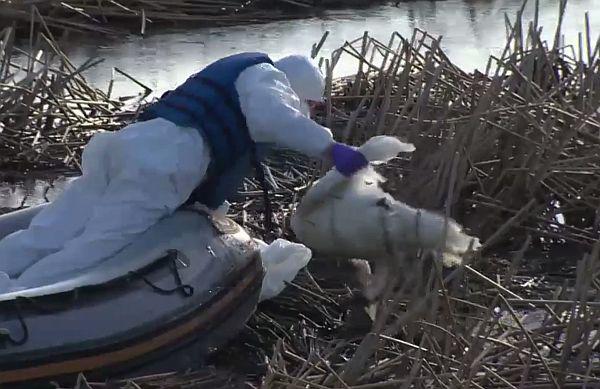Firefighters from Petišovci have already made their fourth intervention this week on a sad mission, helping an expert from the National Veterinary Institute (NVI). On Friday additional 65 swans were found dead in addition to the previous 100 swan carcasses this winter. "We're collecting them with the help of the Petišovci Fire Brigade. We transport them to a repository in Murska Sobota, where samples are taken and sent to NVI. We're waiting for results to come in," explained Saša Sandi Golub from NVI.
Previous results all tested positive for bird flu. The virus is not dangerous to humans but caution is advised. Petišovci firefighters do their best to disinfect the boat as well as other equipment.
Considering the number of dead swans, the outbreak shows no signs of abating. Experts have urged nearby farmers to follow preventative measures, especially in the case of poultry, which should be put indoors, into fenced enclosures.
Swans no longer exotic
About a decade ago the swan was still an exotic bird in Slovenia, since it was rarely seen in nature. This has changed in the past few years. "The consequence of mild winters is an increasing number of birds staying here. Some species now do not migrate since they find enough food. The swan is one of those species," pointed out Peter Domanjko from the Goričko Regional Park.
Bojan Peček, TV Slovenija; translated by K. Z.


































































